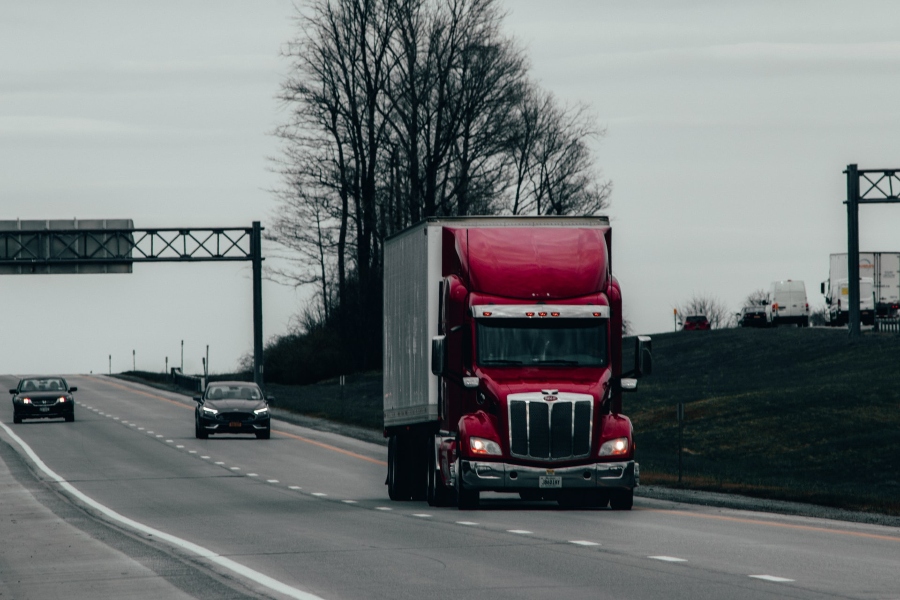
Truck accidents are not only incredibly dangerous. But they’re also incredibly costly for victims who suffer severe, debilitating injuries. Unfortunately, these devastating collisions continue to increase in number. Fatal trucking accidents in Florida jumped by 4% in 2020 compared to 2019. And trucking accident deaths have increased by nearly 40% in the last decade. In 2020, 344 Floridians lost their lives – the third-highest total in the United States.
Why is this happening? As you might expect, there are a number of factors that seem to be playing a role.
If you or a loved one has been severely hurt in an accident caused by a large truck, the attorneys with The Eberst Law Firm are ready to help. We will walk you through the process of getting what you deserve for your truck accident. And we’ll do everything we can to help achieve a positive outcome on your behalf.
Please contact us online or call 1-888-CALL-JON as soon as you can to learn more about what we might be able to do for you. In the meantime, here are a few of the factors that have contributed to an increase in truck accidents on Florida’s highways.
An Increase in Truck Deliveries Because of COVID-19
Anyone who visited a grocery store during the height of the pandemic was quickly greeted by empty shelves. Panic-buying led to people hoarding many different kinds of items. As such, supplies were quickly depleted as a result. This meant that more trucks were needed to make more deliveries. Of course, the more trucks on the road, the higher the risk of accidents.
In addition to the increased presence of trucks, another factor that helps to explain the increase in accidents was the fact that the FMCSA (Federal Motor Carrier Safety Administration) temporarily relaxed some HOS (hours of service) rules designed to combat driver fatigue. More drivers were operating their trucks while exhausted. This has increased the likelihood of accidents in the process.
Are People Still Online Shopping as the Pandemic Comes to an End?
Sure. People still buy online, just like they were doing before the pandemic ever started. During this time, delivery trucks were swarming the roads. Of course, this led to an increased chance of accidents taking place.
But a lot of so-called “experts” were predicting that the pandemic would bring an end to in-person shopping. Nothing could be further from the truth. While it’s true that many people are still hesitant to go to a mall or any other type of crowded environment, far more couldn’t wait to get out once restrictions were lifted. Many shoppers have also found a comfortable medium. They’ll order something online and then go to the store, restaurant, or retail location to have curbside delivery.
Regardless of whether consumers are shopping online or buying in person, more purchases means more trucks on the road to replenish supplies.
What’s Causing This New Increase?
One of the biggest reasons truck accidents are on the rise is the fact that there’s a major shortage of drivers. Most of the ones on the road are older. And there aren’t enough younger drivers to take over.
This results in trucking companies doing whatever they can to fill the void. Even if it means putting unqualified drivers in control of machines that typically weigh about 80,000 pounds. It is much harder to drive a truck than you might think. Inexperienced drivers simply don’t know how to safely operate these huge rigs. For example, they haven’t yet developed a feel for the turning radius of a truck, nor do they know how to safely maneuver on steep hills.
They can also find it harder to get around unexpected obstacles and other hazards, and aren’t equipped to handle slick, rainy roads. When an inexperienced driver causes an accident, the trucking company that hired the driver could be held liable for any injuries and property damage that occur.
How Can You Stay Safe?
There are a lot of things that motorists need to keep in mind when they’re sharing the road with a large commercial truck. These are just a few of those considerations.
- Big trucks have big blind spots. When you’re on an interstate and a big truck is nearby, you have to remember that the driver of that rig is dealing with a much bigger blind spot. These “no zones” can make things extremely dangerous. If you can’t see a truck’s mirrors, then there’s very little chance the driver will be able to see you. Also, when you’re near a large truck at night, make sure your headlights are on the standard setting. If they’re too bright, that might make it impossible for the trucker to see you.
- Maneuvering a truck is very difficult. A large truck can’t move as easily as a passenger car, nor can it accelerate as quickly. That truck might not be able to avoid your vehicle if something happens and you’re too close. A good rule to remember is to leave plenty of space between you and any truck, just in case something happens and the driver loses control.
- Truck drivers are more fatigued than ever. The trucker shortage means that the drivers who are out there are under more pressure – and more stress – than ever before. They will often drive far past their limits. Even though they should be resting, they’re still behind the wheel. Again, always give a wide berth to any truck you see.
What to do if You’re Involved in a Truck Accident
The most important thing to do if you’re ever involved in a truck accident – or any type of motor vehicle accident, for that matter – will be to immediately get whatever medical help you need. Check on others involved to see if they need help as well. Then call 911 to report what happened.
Once you’ve received medical attention, it will also be critically important to contact a truck accident attorney as soon as possible. The sooner you hire an attorney, the faster that attorney can get to work collecting the evidence needed to prove the negligence of the truck driver, the trucking company, or any other parties that contributed to the accident.
Schedule a free case review with The Eberst Law Firm by calling 1-888-CALL-JON or contacting us online. We’ll fight passionately on your behalf to help you obtain fair compensation.
